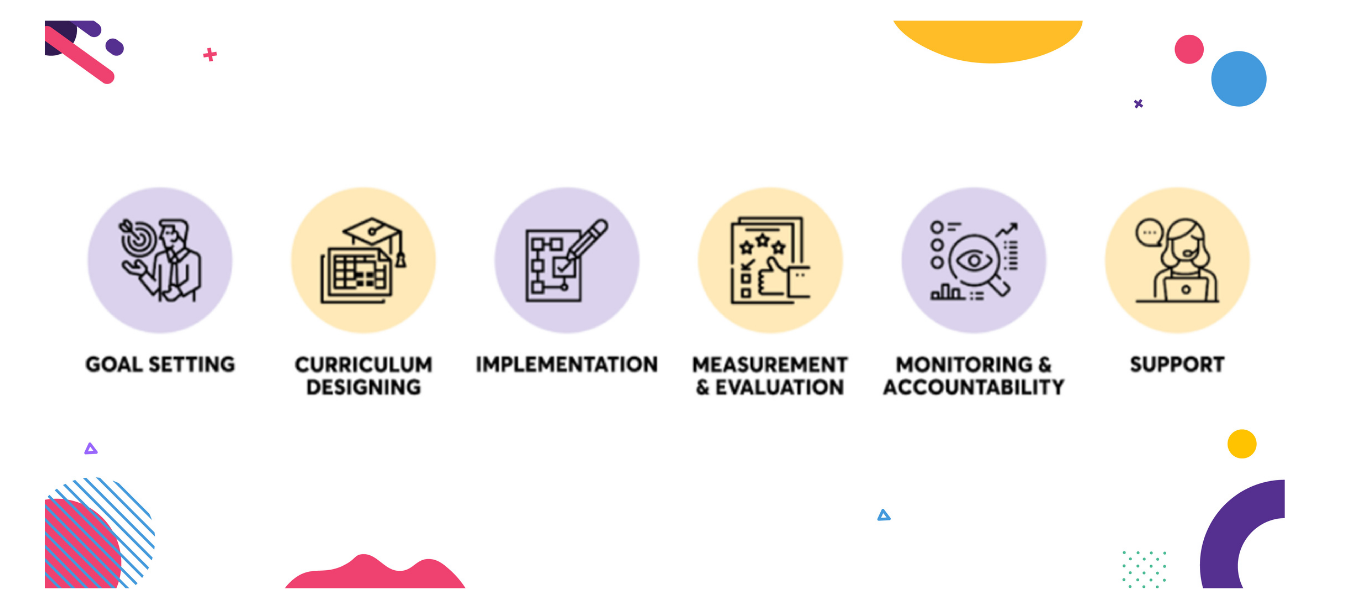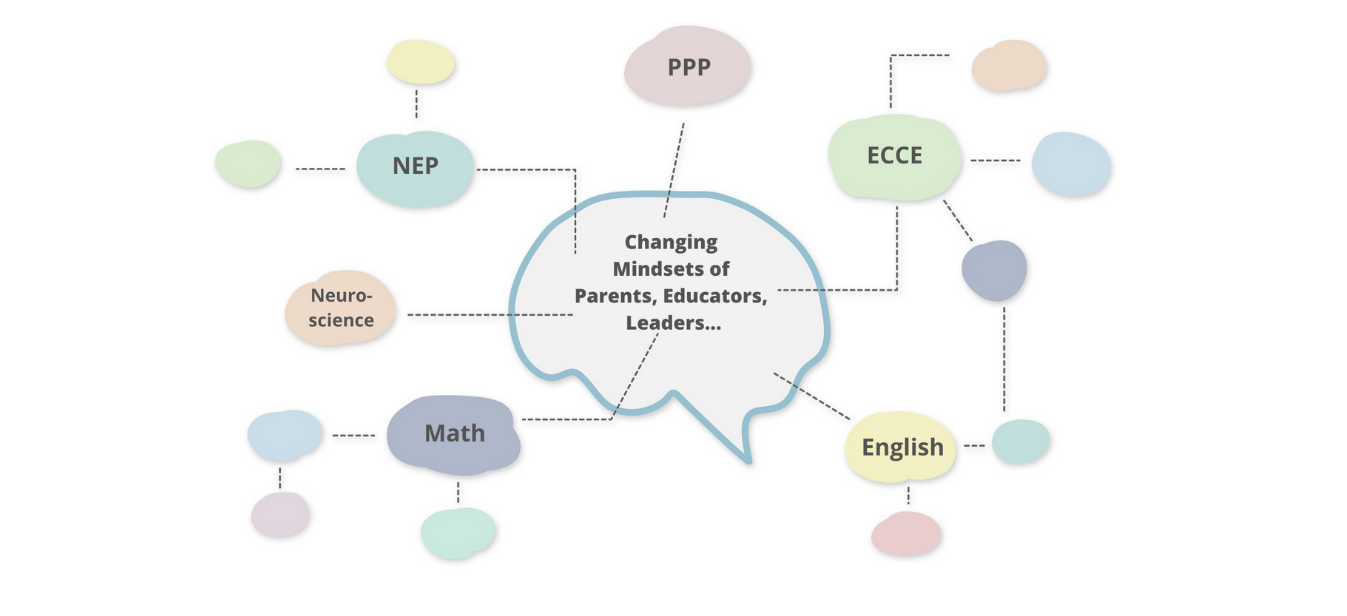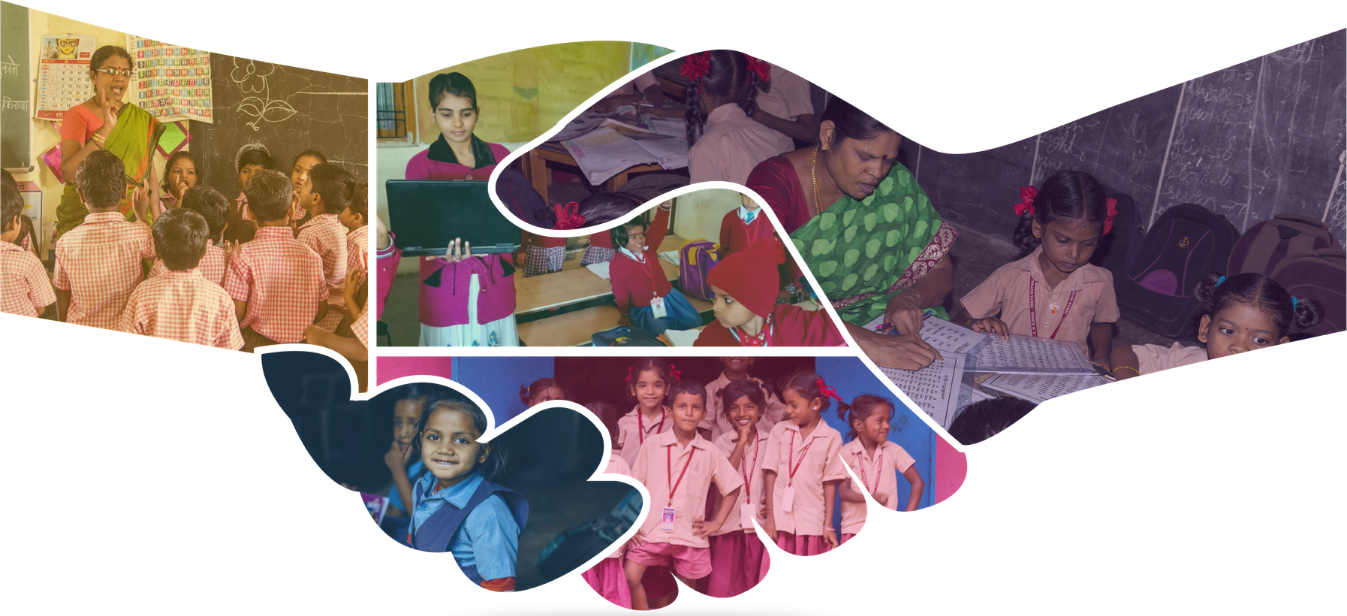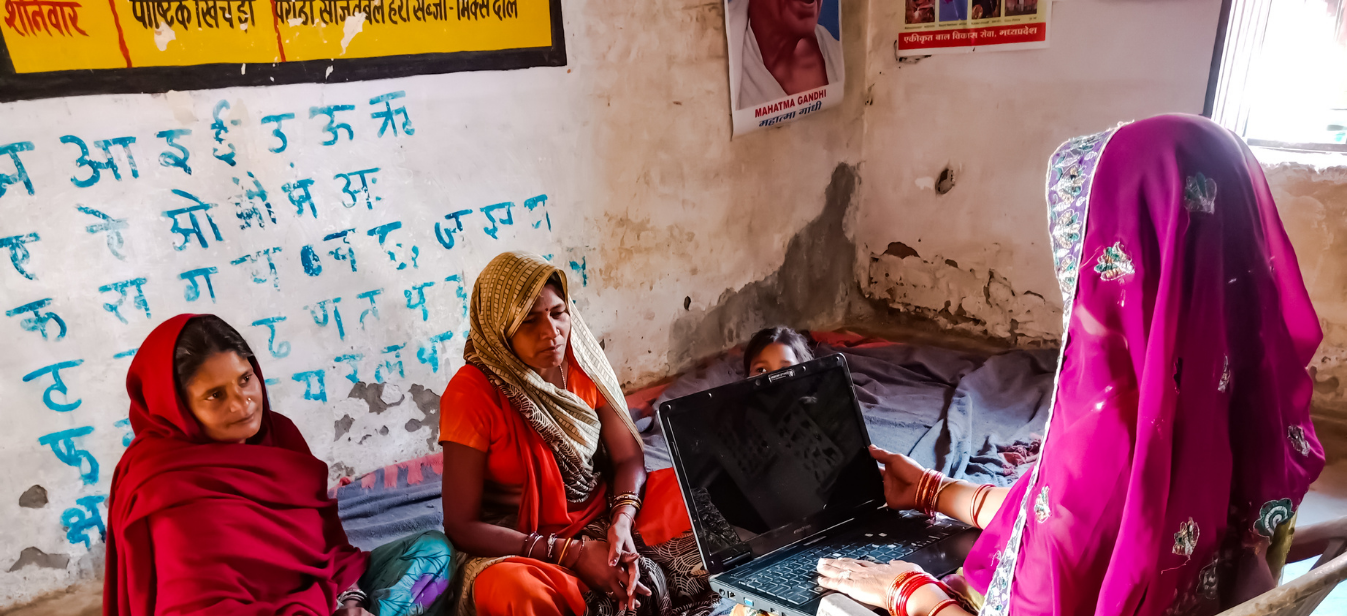Our understanding of the importance of early education stems from the fact that 85% of brain development happens before the age of eight. This fact is highlighted in the National Education Policy 2020, and is one reason for the renewed focus on Early Childhood Care and Education (ECCE). Studies show that for a young learner’s holistic development, there needs to exist a supportive, and stimulating environment. The lack of such an enriching environment can stunt brain development.
To impact early childhood education on a large scale, Square Panda India has identified a need to impact each person responsible for imparting early learning. In effect, this includes ECCE stakeholders – parents, teachers, administrators, and other early years’ educators, leaders, and children themselves.
Every adult has to not only function as a high-quality content creator but understand the science behind early learning, and the system that comes into play as a young child begins to learn.
To further our goal of transforming the ECCE landscape in India, we adopted a three-pronged approach to develop the entire early education ecosystem; the Anganwadi workers, ECCE educators, and the children themselves. This early learning initiative, called Aarambh, holistically empowers each stakeholder through foundational learning and educator empowerment programs.
Square Panda India’s Research Into The Early Brain
Aarambh is completely research-driven, with each program interconnected. This comprehensive approach guarantees that we meet the desired learning outcomes. Knowledge of multiple crucial components of early childhood education is integrated into our programs, enhancing the development of foundational skills like cognitive development, motor skills, reasoning, and more. To impact learning outcomes holistically, we put years of neuroscience research into developing our foundational learning and educator empowerment programs. Our programs ensure every stakeholder is well-versed in the pedagogy and the neuroscience behind early learning, with a strong grasp of digital knowledge, for a well-rounded 21st century approach to teaching-learning methodologies.
Strategic Expertise
Square Panda India has assembled a team of 100+ experts and specialists from the ECCE sector across India, including school administrators, educators, teacher trainers, counsellors, specialists in the fields of cognitive neuroscience and early education, child psychologists, technologists, game developers, and coders, whose participation and insights have proven invaluable while structuring our program curriculum.
We are constantly building our teams and ensuring we bring the most innovative ECCE programs to impact young learners and early years educators. Furthermore, we have built our teams keeping in mind regional language requirements.
Curriculum Designing Process
STEP I: Our expert team of in-house researchers puts in deep thought and years of research while designing each module of the Square Panda India foundational learning and educator empowerment programs.
STEP II: We conducted on-ground pilots with governments and impact organisations across India to measure the efficacy of our teaching-learning programs.
STEP III: Expert on-ground teams were conscripted to assess each aspect of our programs.
STEP IV: This assessment led to the extraction of performance metrics, which were used to evaluate areas of improvement.
STEP V: Armed with analytics from our studies and field research to prove our impact, we have partnered with and continue to partner with multiple state governments and the central government to drive learning and skill development for millions of children and early years’ educators across India.
Our ‘Six-Pillar’ Approach
Square Panda India follows a systematic approach with the following six pillars that we have identified, for a holistic change:
Pillar 1 – Goal Setting: We create a well thought out and structured plan around a common vision. We then define the program objective, its outcomes, and key measurement metrics. For greater clarity and alignment across the stakeholders, we identify and define the key responsibilities early on. Lastly, we design the program schedule, key milestones, and timelines.
Pillar 2 – Curriculum Designing: Our expert team designs our innovative curriculum, conceptualising them for India while using best global practices.
Pillar 3 – Implementation: To bring about seamless implementation, we:
- Create a program management team comprising stakeholders from the Government, respective organisations, and Square Panda India, who create a detailed roll-out plan
- Create an on-ground team from the local community for additional effectiveness
- Implement our program
Pillar 4 – Measurement & Evaluation: Our programs are assessed periodically throughout the year to measure impact. The results are compared and presented at multiple levels – grade-wise, age-wise, skills-wise, school-wise, district-wise, and state-wise. These assessments throw light on gaps and common issues, providing actionable insights that aid in improving the subsequent program outcomes and effectiveness.
Pillar 5 – Monitoring & Accountability: Square Panda India promotes complete transparency while implementing our programs, conducting regular field visits, gathering feedback from participants, and ensuring Program Health checks are provided to stakeholders for review.
Pillar 6 – Support: We provide continuous support throughout the program by supplying end-to-end solutions, including teacher training, classroom resources like teaching-learning material, lesson plans, and performance data to help make decisions on how to help students better their learning journey.
Blending Practical With Theoretical
To transform early childhood education, and drive it to its fullest potential, we take on a holistic approach towards the development and implementation of our foundational learning and educator empowerment programs. Each aspect of our programs incorporates practical application alongside theory for better outcomes:
In Our Teams: Each member of our content and curriculum team has been chosen based on the expertise in teacher training and development, and years in ECCE. Subsequently, our content is based on their insight and in-depth practical knowledge of the early learning landscape in India.
During Implementation: Square Panda India translates our ECCE expertise and research into the field, taking a rounded approach to implementing each program. We blend practical knowledge with theory, using case studies, role plays, group games, and activities to enhance the understanding of our curriculum.
Our years of research in early childhood learning, understanding of how young minds work, and use of neuroscience-backed learnings to develop our programs, sets us apart from similar programs, making us a partner of choice.
Learn more about us: ecce.squarepanda.in









